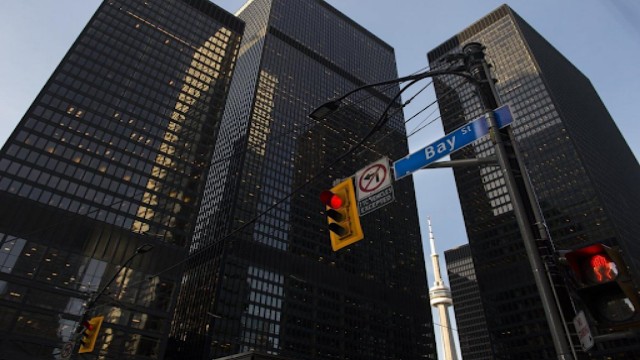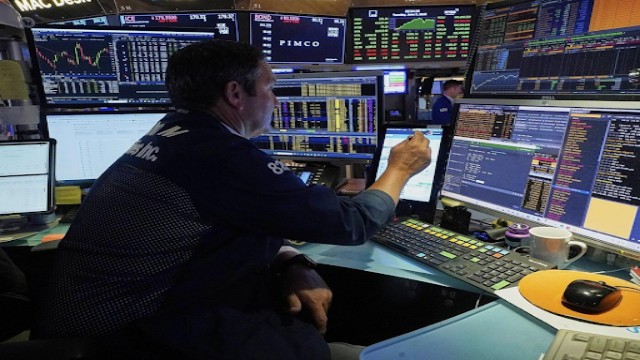
The Euronext stock exchange, located in Paris’s La Défense business district, was captured in a recent Reuters photograph.
Investors worldwide are rattled by the latest tariff announcements, triggering sharp declines in stock markets across major economies. Wall Street futures have tumbled by 3%, Japan’s Nikkei is following suit, and European stock futures are down by 1.7%. Meanwhile, bond markets are seeing a flight to safety, pushing U.S. Treasury yields to multi-month lows, while the dollar index has sunk to its weakest level in nearly six months.
The global selloff follows a dramatic policy move by U.S. President Donald Trump, who unveiled new tariffs on live television. With a blue and yellow chart in hand, he laid out the steep increases: 34% for China, 20% for the European Union, 32% for Taiwan, 24% for Japan, and a staggering 46% for Vietnam.
Tech Sector Takes a Hit
Investors in the technology sector have been hit particularly hard by the announcement. The new levies are expected to disrupt global supply chains, significantly increasing costs for companies that rely on Asian manufacturing. Apple, a major player with deep ties to Chinese production, saw its stock plunge by 7% after the news broke.
Analysts widely disagree with the White House’s stance that these tariffs will benefit the U.S. economy. Instead, they warn that the end of free trade could lead to economic downturns both in America and globally. Concerns over a potential recession are mounting, with market watchers adjusting their forecasts accordingly.
Recession Fears and Inflation Worries
Interest rate expectations are shifting as investors anticipate that the Federal Reserve may have to step in to counteract the economic slowdown. Futures markets now predict 80 basis points of interest rate cuts this year. However, this move is complicated by the fact that tariffs are likely to push inflation higher. Some economists estimate that new car prices alone could rise by $6,000 to $10,000 due to supply chain disruptions and higher import costs.
While Federal Reserve officials typically dismiss short-term price spikes, the COVID-19 pandemic demonstrated how companies can use inflationary pressures to justify price increases, further fueling economic instability.
Uncertain Future and Global Backlash
The long-term implications of these tariffs remain unclear. The White House has signaled a willingness to negotiate with individual nations, but businesses are struggling to make strategic decisions in such an unpredictable trade environment.
Other countries are preparing their responses, with European Commission President Ursula von der Leyen already vowing retaliation if diplomatic talks fail. Historically, such trade wars have had disastrous consequences—many economists point to the infamous Smoot-Hawley Tariff Act of the 1930s, which exacerbated the Great Depression.
As tensions escalate, markets are bracing for further turbulence. With key economic reports on U.S. trade, jobless claims, and European producer prices due this week, investors will be closely watching for any signals that could steer the direction of global markets.















